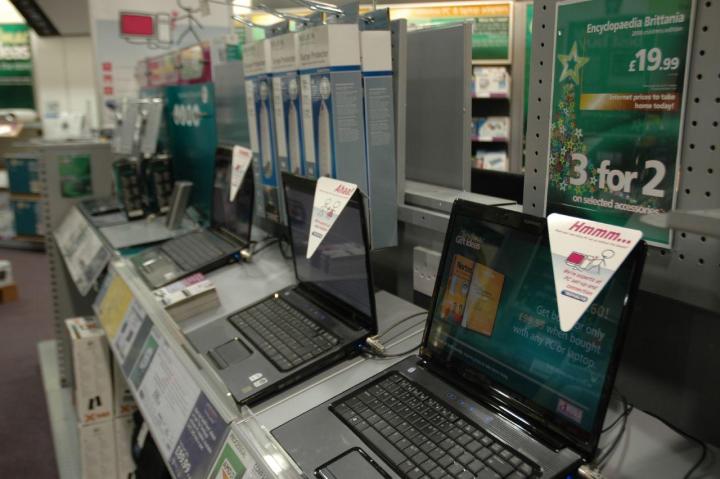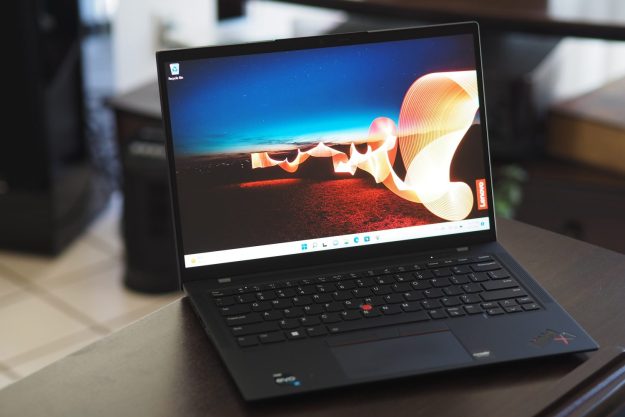
Pre-loaded programs can include everything from games to media libraries to photo editors. In some instances programs can introduce users to software they wouldn’t have used otherwise while on the other hand, pre-loads can also be annoying and cumbersome.
When bloatware gets dangerous
Lenovo was embroiled in controversy earlier this year over installing the “Superfish” adware on certain laptops, which could break HTTPS connections and potentially allow man-in-the-middle attacks, putting user data at risk. It was one of the more serious cases of bloatware on computers, and had many security experts concerned, highlighting the issue for consumers.
After the controversy, Lenovo revamped its policy of pre-installed programs and offered free McAfee anti-virus solutions to those affected by Superfish.
At the time of the announcement, Lenovo stated that its Windows 10 laptops will be free of “what our industry calls ‘adware’ and ‘bloatware’” in the future. It wasn’t a complete U-turn on pre-loads, though, as the announcement also stated that “for some countries, certain applications customarily expected by users will also be included.”
Generally, the worst effect of pre-loaded software is degradation in the performance of your computer.
“Almost all of these programs come with auto-updaters that run constantly as a supposed security feature to keep the software current,” says Matt Sweeney of Morris Computer Consulting. “They also often have requests for user registration that will nag the user until completed. These nags are powered by scheduled system tasks that can cause performance issues.”
These reminders and notifications can cause some user confusion over what are legitimate programs and what aren’t, and that can lead to possibly falling for malware disguised as a software update.
Whatever the case may be, bloatware is nearly inevitable when buying a PC or laptop, and has extended to the mobile world too. In most cases, users can uninstall pre-loaded software from their computers, but some programs can launch automatically when you start Windows without the user realizing.
Manufacturers usually pre-load programs on their PCs and laptops as a means to lower the cost of the device. On the flipside, it can be potentially lucrative for the developers of these programs. They hope that by being on your system when you buy it you’ll use the program, possibly download more of their software, and maybe even pay a subscription fee.
Getting the balance right
PC manufacturers need to vet the developers of software that may be bundled on your computer, according to Mike Nash, VP of customer experience at HP.
“We’re also doing our own level of QA to validate that what they’re shipping on the device is high quality,” he says. “Of course part of that is we scan for malware as well.” The process is often a case of balancing aggressive price points for PCs with the user experience by keeping pre-loads at a shrewd level.
Bloatware is powered by scheduled system tasks that can cause performance issues.
“The challenge we’ve gone through is saying how do you balance finding the one program that does 80 percent of things customers want it to do, versus three or four programs that collectively do more like 95 percent of what our customers want?” says Nash, using the example of a photo manager.
This was put to the test in one of HP’s most recent laptops, the Spectre x360. “One of the things for that we said is, we’re going to have one product for photos,” says Nash who adds that the experiment will see if having one product that has most features is better than several that do everything.
Customer feedback and changing policies
Dell is another company that is revising its approach to pre-loaded software. According to Brett Hansen, executive director of endpoint security at Dell, the company changed its policy a couple of years ago with the launch of Windows 8 based on customer feedback. Dell now has what it calls a “simpler, clean load” on its computers.
“It was really driven by consistent feedback from customers that they’d rather go find the applications themselves rather than us making the decision on their behalf,” explains Hansen.
Hansen and his colleagues at Dell arrived at this policy by carrying out a number of studies on users. One included putting a sample of customers in front of a computer with many pre-loaded programs and another group in front of a computer with the minimum. Most users preferred the cleaner PC.
Now Dell only includes the basics, such as an anti-virus program, back-up solution, and programs around troubleshooting and diagnostics.
“We’ve kept that policy in place and we continue to work on it. We’ve gone even thinner and lighter,” he adds. “For example with our back-up recovery solution, which we’ve had since Windows 8, we’re going to sunset with Windows 10 because Windows 10 has a great new back-up recovery. Microsoft’s got that covered.”
There’s a growing awareness around software and hardware. The consumer is more knowledgeable and savvy than they were a few years ago.
“They’re not interested in me pre-loading an app, which they know they can go find from a number of different stores,” he continues. “That’s really where the big change is, and perhaps it was brought on by phones and people getting more comfortable with online stores.”
What the software developers have to say
Bloatware and pre-loads generally earn a lot of criticism, but that’s not to say that pre-loaded apps and programs are maligned across the board. Most people are happy to have Adobe Reader, for example, ready on their system when they get started. So how do the companies behind pre-loaded software feel?
PowerDVD, a media player developed by CyberLink, has been bundled on PCs by several major manufacturers. Richard Carriere, CyberLink’s SVP of global marketing says its software is much like any PDF-viewing or Office-like software and people expect it.
Not all pre-bundled software is created equal.
“Our software is serving a universal purpose and both users and manufacturers see high value in having it pre-installed,” he says, adding that he sees high numbers of customers using PowerDVD. “Not all pre-bundled software is created equal, and it’s a fair criticism that some programs are considered bloatware. PowerDVD, though, is not one of them.”
So should customers have more of a say in how PCs are sold and the programs that are installed as soon as they open up the box?
“Absolutely. The amount of junk that comes with a new machine today is unreasonable,” says Marcin Kleczynski, CEO of anti-malware solution Malwarebytes. “Providing an easier removal option or making the bundled software opt-in would go a long way for the consumer.”
How can you combat bloat?
There are options out there for customers who want to remove bloat, such as tools like PC Decrapifier and Should I Remove It?, which scan your system for bloatware and any software you’re not using that may be slowing down your performance. Beyond that, you can install a fresh version of Windows.
PC buyers can also go for the Microsoft Store’s Signature Edition computers. These stripped down laptops and PCs, running the latest edition of Windows, have no added third-party software.
Unfortunately, Signature Edition laptops, which include PCs from HP, Lenovo, and Dell, are much more expensive than the usual boxed PCs. For example, the Lenovo Yoga 3 Pro-1370 Signature Edition 2 laptop costs $1,299 compared to other
PC buyers are slowly but surely wising up to this, and are more aware now of pre-loaded programs than they have been before. Still, the onus will be on PC makers to be a little more judicious with what they pre-load.
Editors' Recommendations
- 6 laptops you should buy instead of the MacBook Air
- This is the best Lenovo gaming PC you can buy
- This is the best Alienware gaming PC you can buy
- Google is changing everything you know about Chromebooks
- I’m a laptop reviewer, and these are the only laptops creatives should buy in 2023




